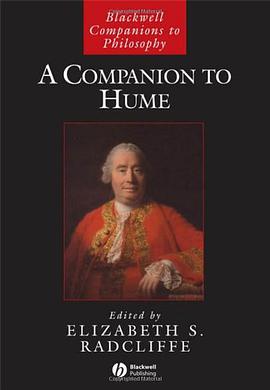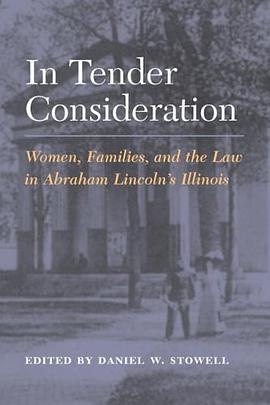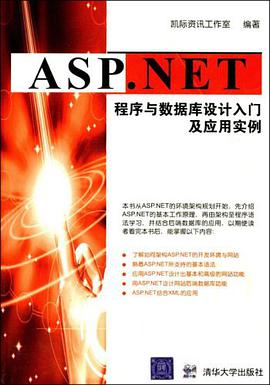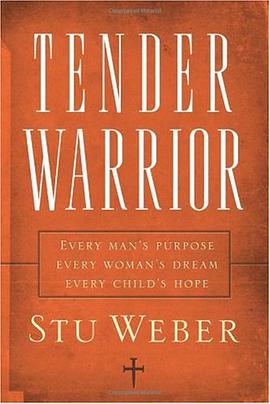
A Companion to Hume pdf epub mobi txt 電子書 下載2025
- Hume
- 布萊剋維爾哲學指南係列
- Hume
- 哲學
- 蘇格蘭啓濛運動
- 認識論
- 形而上學
- 經驗主義
- 懷疑主義
- 道德哲學
- 政治哲學
- 曆史哲學
- 18世紀哲學

具體描述
Comprised of twenty-nine specially commissioned essays, A Companion to Hume examines the depth of the philosophies and influence of one of history's most remarkable thinkers.
*Demonstrates the range of Hume's work and illuminates the ongoing debates that it has generated
*Organized by subject, with introductions to each section to orient the reader
Explores topics such as knowledge, passion, morality, religion, economics, and politics
*Examines the paradoxes of Hume's thought and his legacy, covering the methods, themes, and consequences of his contributions to philosophy
著者簡介
Elizabeth S. Radcliffe is Professor of Philosophy at Santa Clara University. Her areas of specialization include Hume, ethical theory, motivational psychology, and seventeenth- and eighteenth-century philosophy. She is the author of On Hume (2000), editor of A Companion to Hume (Blackwell, 2007), and was co-editor of the journal Hume Studies from 2000 to 2005.
圖書目錄
Acknowledgments.
Note on Citations.
Introduction.
Hume's Context:.
1. Hume in the Enlightenment Tradition: Stephen Buckle (Australian Catholic University).
Part I: Mind and Knowledge:.
2. Hume's Theory of Ideas: Don Garrett (New York University).
3. Hume on Memory and Imagination: Saul Traiger (Occidental College).
4. Hume and the Origin of Our Ideas of Space and Time: Wayne Waxman (New York University, Visiting Professor).
5. Hume on the Relation of Cause and Effect: Francis Watanabe Dauer (Emeritus, University of California, Santa Barbara).
6. Inductive Inference in Hume's Philosophy: Louis E. Loeb (University of Michigan).
7. Hume on Belief in the External World: Michel Malherbe (University of Nantes).
8. Hume on Personal Identity: Donald C. Ainslie (University of Toronto).
Part II: Passions and Action:.
9. Hume's Indirect Passions: Rachel Cohon (New York University).
10. Hume on the Direct Passions and Motivation: Tito Magri (University of Rome).
11. Hume on Liberty and Necessity: John Bricke (University of Kansas).
Part III: Morality and Beauty:.
12. Hume on Moral Rationalism, Sentimentalism, and Sympathy: Charlotte R. Brown (Illinois Wesleyan University).
13. Sympathy and Hume's Spectator-centered Theory of Virtue: Kate Abramson (Indiana University).
14. Hume's Theory of Justice, or Artificial Virtue: Eugenio Lecaldano (University of Rome).
15. Hume on Beauty and Virtue: Jacqueline Taylor (University of San Francisco).
16. Enquiry Concerning the Principles of Morals: Incomparably the Best?: Annette C. Baier (Retired, University of Pittsburgh).
Part IV: Religion:.
17. Hume's Views on Religion: Intellectual and Cultural Influences: Terence Penelhum (University of Calgary).
18. Hume on the Nature and Existence of God: Martin Bell (Manchester Metropolitan University).
19. Hume on Miracles and Immortality: Michael P. Levine (University of Western Australia).
Part V: Economics, Politics, and History:.
20. Hume's Economic Theory: Tatsuya Sakamoto (Keio University).
21. "One of the Finest and Most Subtile Inventions": Hume on Government: Richard H. Dees (Rochester University).
22. "The Most Illustrious Philosopher and Historian of the Age": Hume's History of England: Mark Salber Phillips (Carleton University).
Part VI: Contemporary Themes:.
23. Hume's Naturalism and His Skepticism: Janet Broughton (University of California).
24. Is Hume a Realist or an Anti-realist?: P. J. E. Kail (University of Oxford).
25. Hume's Epistemological Legacy: William Edward Morris (Illinois Wesleyan University).
26. The Humean Theory of Motivation and Its Critics: Elizabeth S. Radcliffe (Santa Clara University).
27. The Sources of Normativity in Hume's Moral Theory: Tom L. Beauchamp (Georgetown University).
28. Hume's Metaethics: Is Hume a Moral Noncognitivist?: Nicholas L. Sturgeon (Cornell University).
Bibliography.
Index
· · · · · · (收起)
讀後感
評分
評分
評分
評分
用戶評價
已讀:23
评分已讀:23
评分已讀:23
评分已讀:23
评分已讀:23
相關圖書
本站所有內容均為互聯網搜索引擎提供的公開搜索信息,本站不存儲任何數據與內容,任何內容與數據均與本站無關,如有需要請聯繫相關搜索引擎包括但不限於百度,google,bing,sogou 等
© 2025 book.quotespace.org All Rights Reserved. 小美書屋 版权所有




















